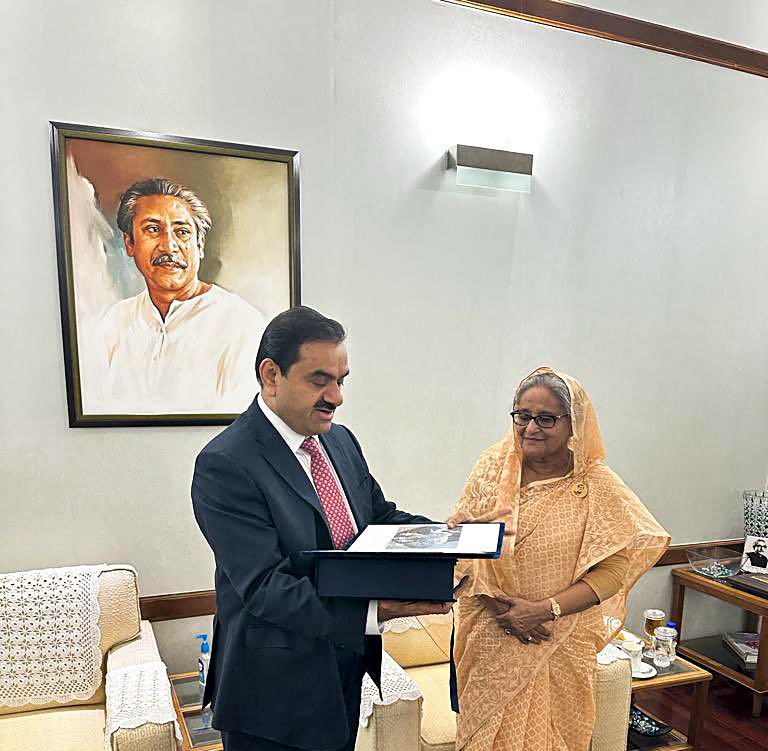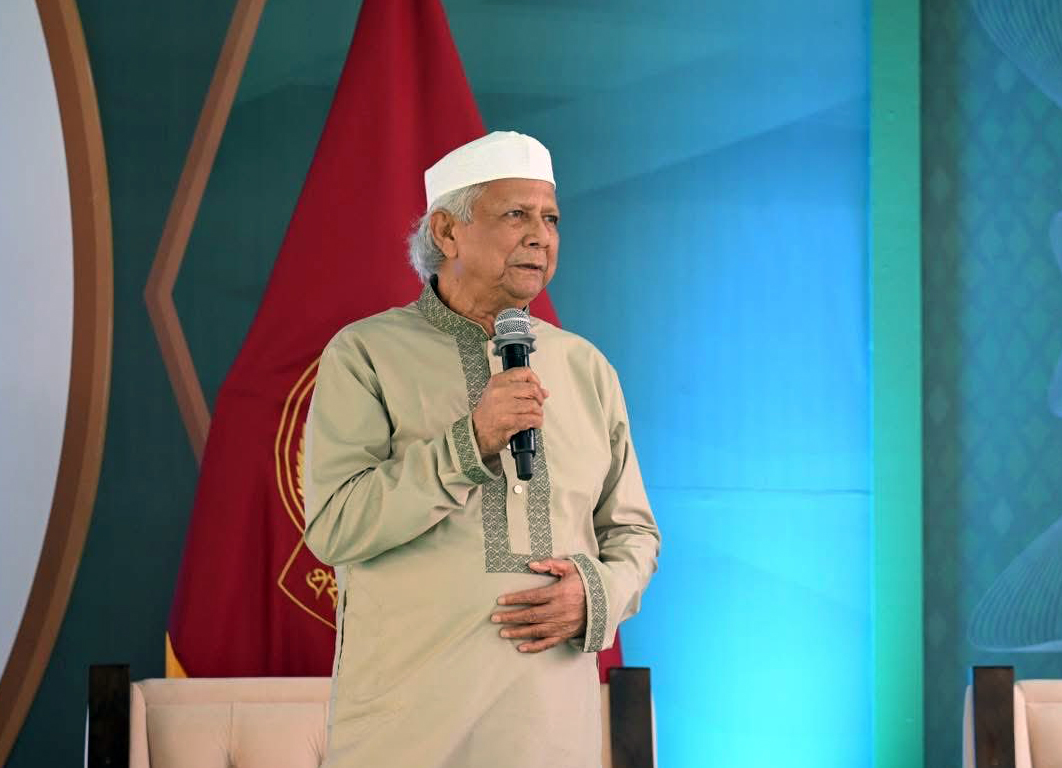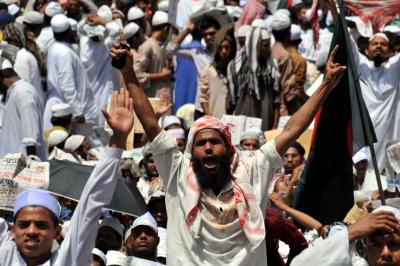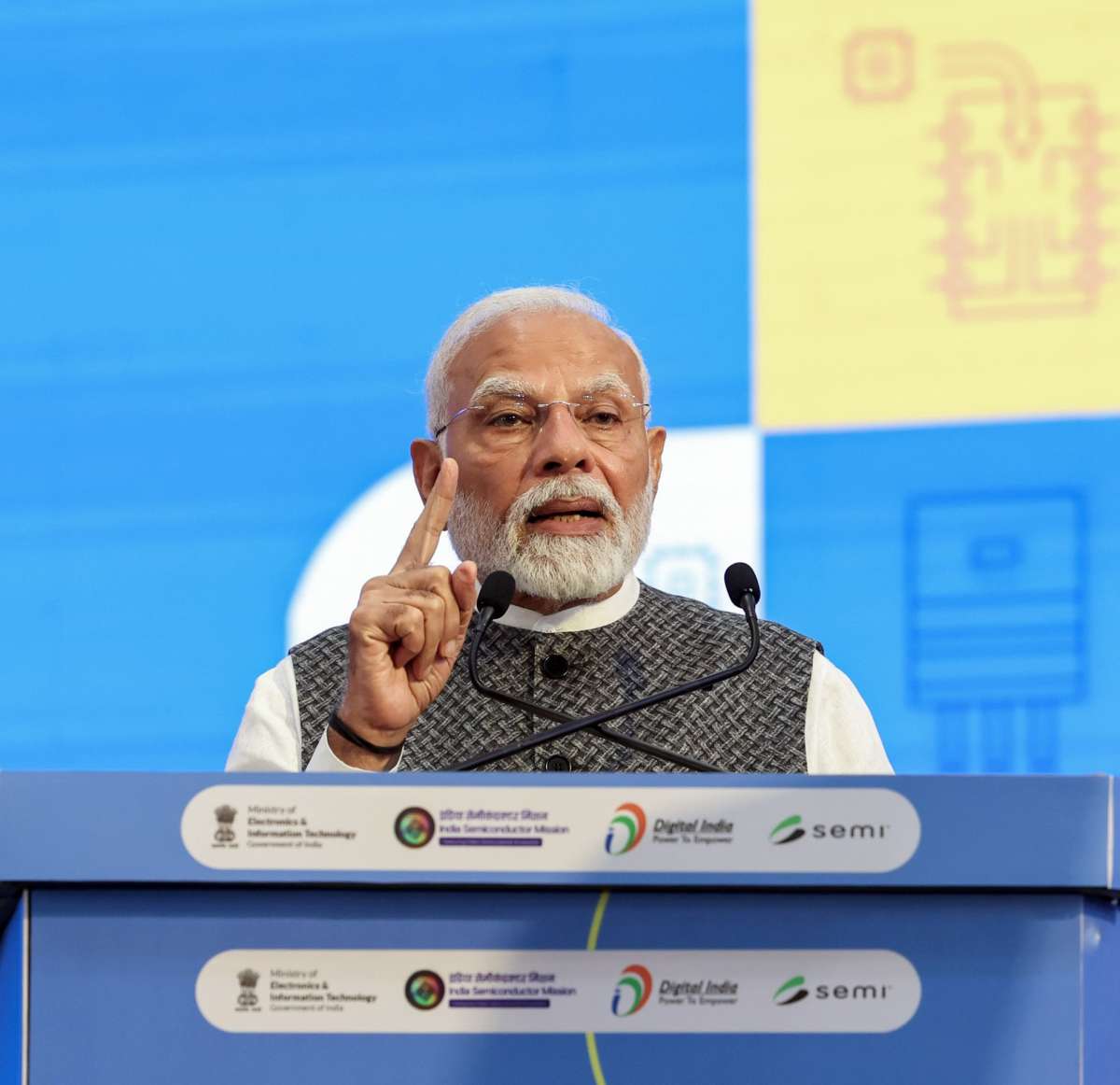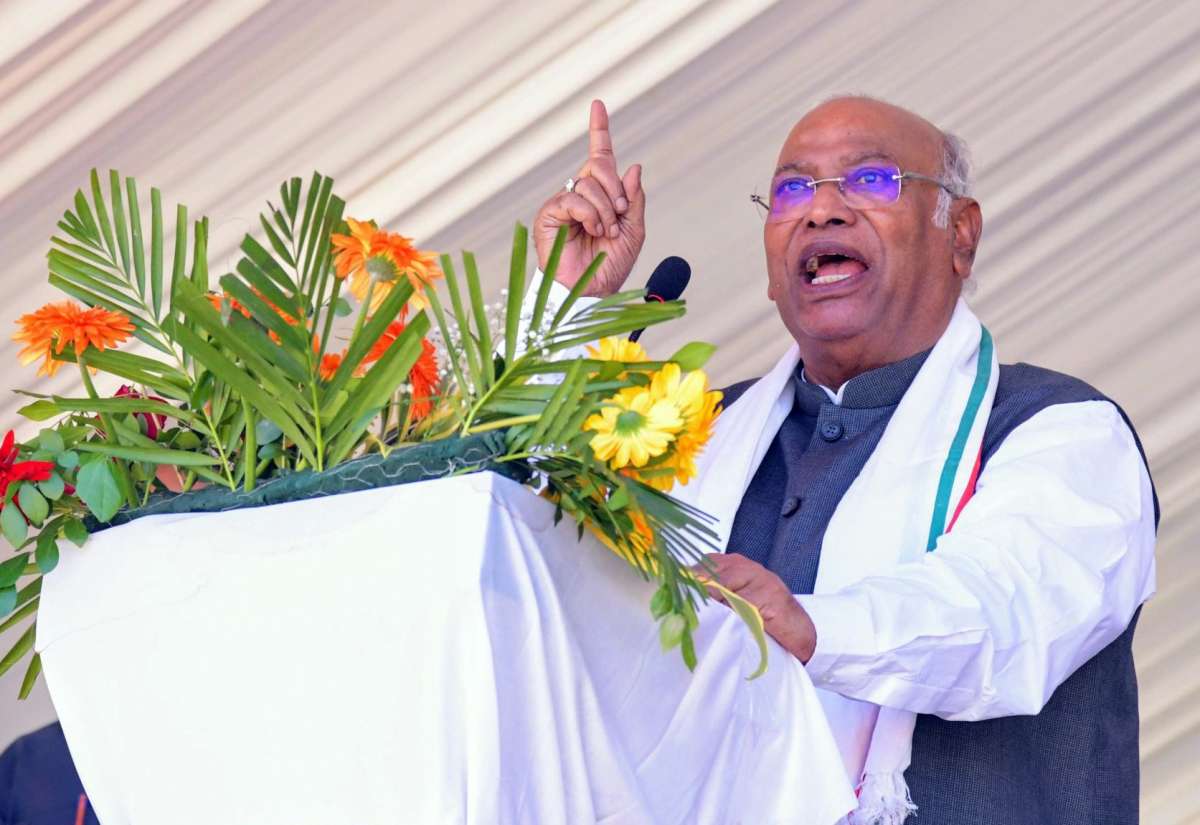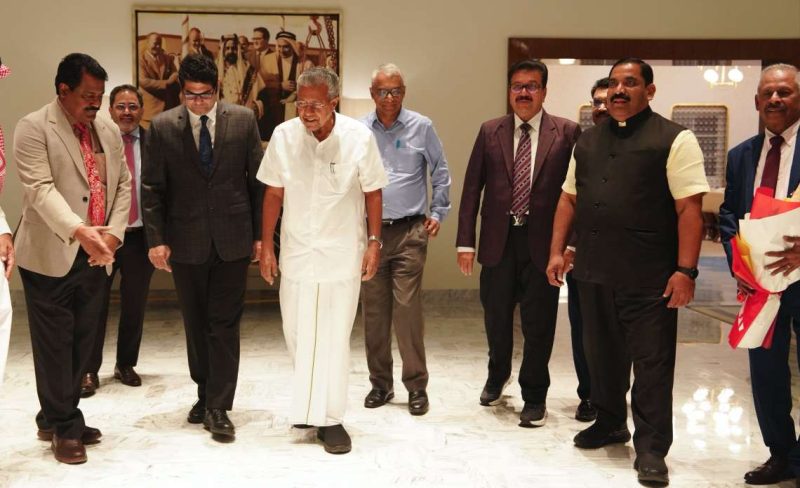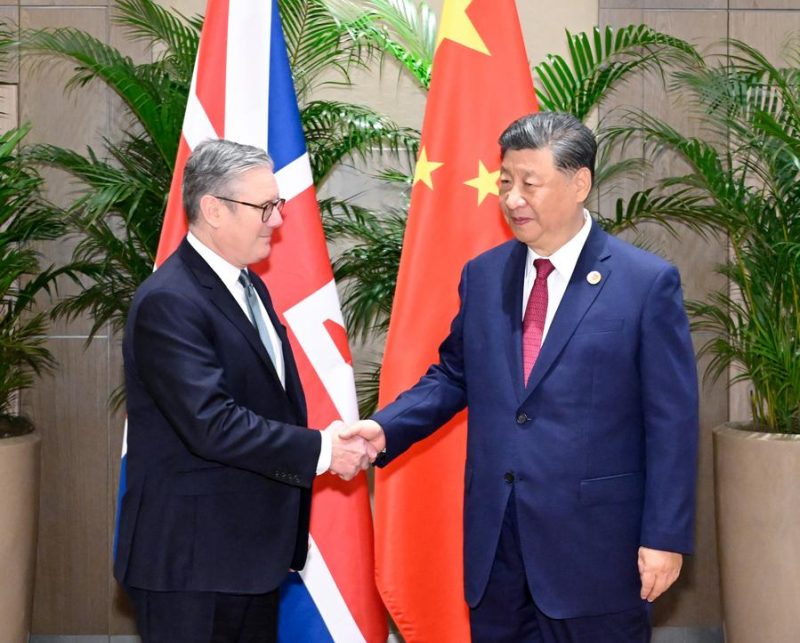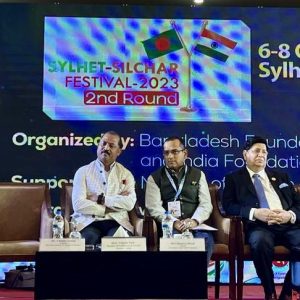In value terms, India’s power exports to Bangladesh had crossed $1 billion, almost 10 per cent of India’s total exports to its neighbour…reports Asian Lite News
The interim government of Bangladesh, led by Muhammad Yunus, is set to scrutinise Indian businesses including the Adani Group which exports power from its Jharkhand unit under a 2017 agreement.
More specifically, the interim government is keen to know the terms of the agreement and if the price being paid for power is justified.
“There will be scrutiny of Indian businesses, like the Adani business… what kind of contracts have been signed, what are the terms and conditions, one cannot have a foreign company not follow the law of the land,” said a senior functionary of the interim government who did not wish to be named.
“So those investigations will be done; it will be painted as targeting Indian businesses, no… they will be scrutinised for what they are doing here, how much is Bangladesh paying, is it justified, all these questions will come up,” the functionary said.
In November 2017, Adani Power (Jharkhand) Ltd (APJL) signed a 25-year 1,496 MW (net) Power Purchase Agreement with the Bangladesh Power Development Board. Under this, Bangladesh would buy 100 per cent electricity produced by AJPL’s Godda plant. The unit, which runs on 100 per cent imported coal, was declared a Special Economic Zone by the Indian government in March 2019.
The Godda plant, fully commercially operational during April-June 2023, supplies 7-10 per cent of Bangladesh’s base load. In 2023-24, it exported about 7,508 million units of power, or almost 63 per cent of India’s total power exports of 11,934 million units to Bangladesh.
In value terms, India’s power exports to Bangladesh had crossed $1 billion, almost 10 per cent of India’s total exports to its neighbour.
When contacted, an Adani Power spokesperson said: “We have no information of the Bangladesh government reviewing our PPA. In the spirit of true partnership, we continue to supply power to them despite the massive outstanding owed to us. We are in constant engagement with the Bangladesh authorities and have requested them for early liquidation of our dues as it is making our operations unsustainable.”
The Financial Times reported on September 9 that Adani had warned the Bangladesh interim government that its backlog of overdue payments — of over $500 million — had become “unsustainable”. It quoted Bangladesh energy advisor Muhammad Fouzul Kabir Khan saying the country faced total power liabilities of $3.7 billion, and was late on paying $492 million to Adani, to whom it owes a total of $800 million.
On August 12, the government amended a 2018 regulation that sought to derisk plants such as that of Adani, permitting connection of such a generating station to the Indian grid. This would facilitate sale of power within India in case of sustained non-scheduling of full or part capacity. Essentially, it clears the decks for the sale of power domestically if there is a delay in payments.
As per the annual report of the Bangladesh Power Development Report, the average cost of electricity imported from Indian companies by Bangladesh stood at 8.77 Bangladeshi Taka per unit during 2022-23 (July-June).
However, it varied from company to company. In case of the NVVL Ltd it was 4.22-8.45 Bangladeshi Taka per unit; PTC India Ltd 9.05 Bangladeshi Taka per unit; Semcrop Energy India 9.995 Bangladeshi Taka per unit; and APJL 14.02 Bangladeshi Taka per unit.
Elaborating on ties with India, the top functionary said, “We want to have a stable relationship with India, a neutral relationship.” He added: “But giving Sheikh Hasina refuge is a problem… First we saw that she was there for some time, and now she is being given space for doing activities against Bangladesh…,” the functionary said, referring to ousted Bangladesh Prime Minister Sheikh Hasina’s statements.
On the economic situation which Yunus is also focusing on, the functionary said, “Hasina has left the administration rotten, finances are rotten, corruption is rampant…there are people in the level of peon who have amassed crores of Bangladeshi Taka.”
“We have to first start the engine, make it work, and then go ahead,” the functionary said.
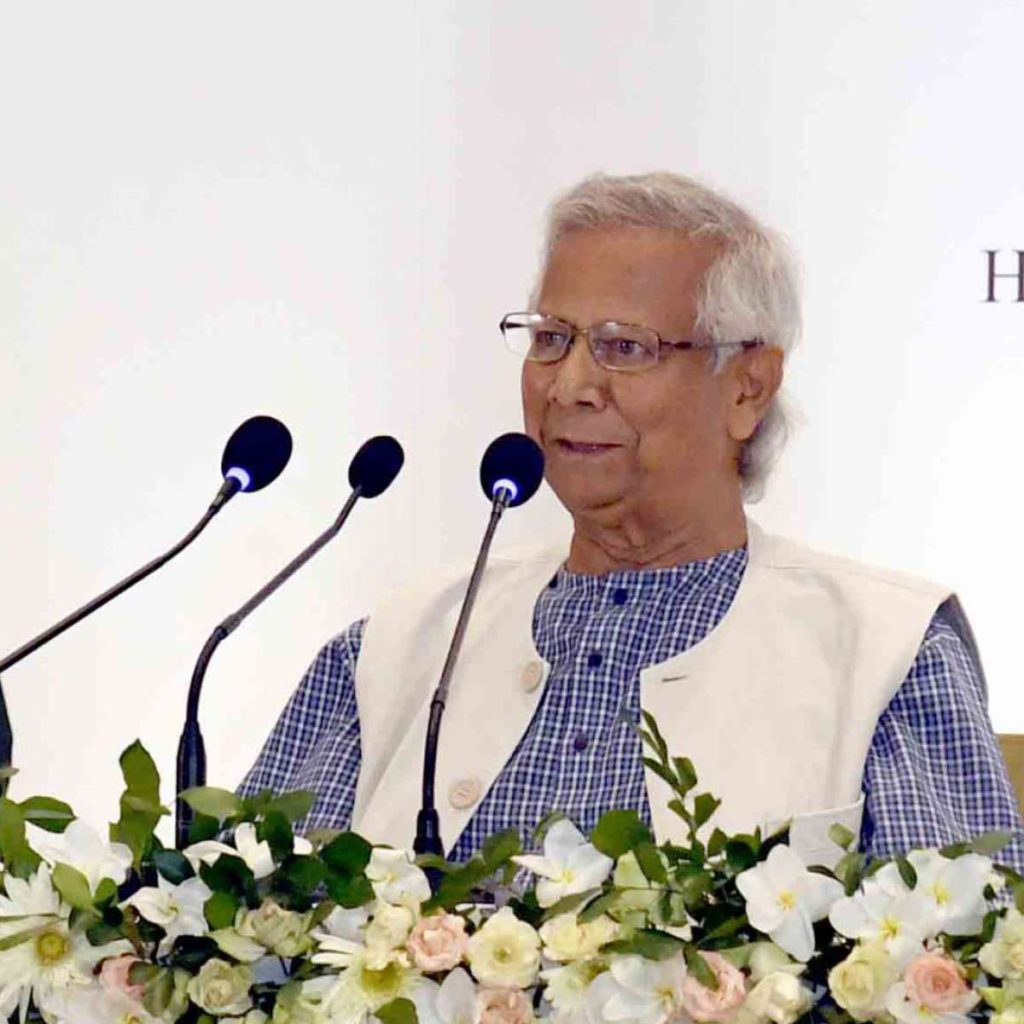
Yunus seeks good ties with India
Bangladesh’s Chief Adviser Dr Muhammad Yunus on Wednesday said his country wants good relations with India and other neighbouring nations it should be on the basis of “fairness and equality”.
In a televised address, Yunus said after he took oath as the head of the administration, many foreign leaders, including Indian Prime Minister Narendra Modi and his Pakistani counterpart Shehbaz Sharif, telephoned to congratulate him.
“We want good relations with India and other neighbouring nations, but that relations should be on the basis of fairness and equality,” he said.
The 84-year-old Nobel laureate took oath as the head of the interim government on August 8 after Prime Minister Sheikh Hasina resigned and fled to India following widespread protests against her government.
Yunus said Bangladesh has already started high-level bilateral cooperation talks with India to deal with floods. “I have also taken the initiative to revive SAARC to enhance regional cooperation in South Asia, he said.
SAARC comprises Afghanistan, Bangladesh, Bhutan, India, the Maldives, Nepal, Pakistan and Sri Lanka. “We want the world to recognise Bangladesh as a respected democracy,” he said.
Yunus said the interim government has taken steps to form six commissions to overhaul in six key sectors, including the electoral system, in a bid to reform Bangladesh. The other sectors are police administration, judiciary, anti-corruption commission, public administration, and the constitution.
The commissions are expected to start their functions from October 1 and they are expected to complete their work within the next three months, Yunus said.
Underlining that the core aim of the reforms is to ensure equal rights for all, he said, “We have a lot of work ahead of us. We want to move forward together toward the same goal. We want to create a structure that enables the untapped talents within us, especially within our new generation, to be expressed without obstacles, with the support of the state and society.
ALSO READ: Bangladesh to seek Hasina’s extradition from India


